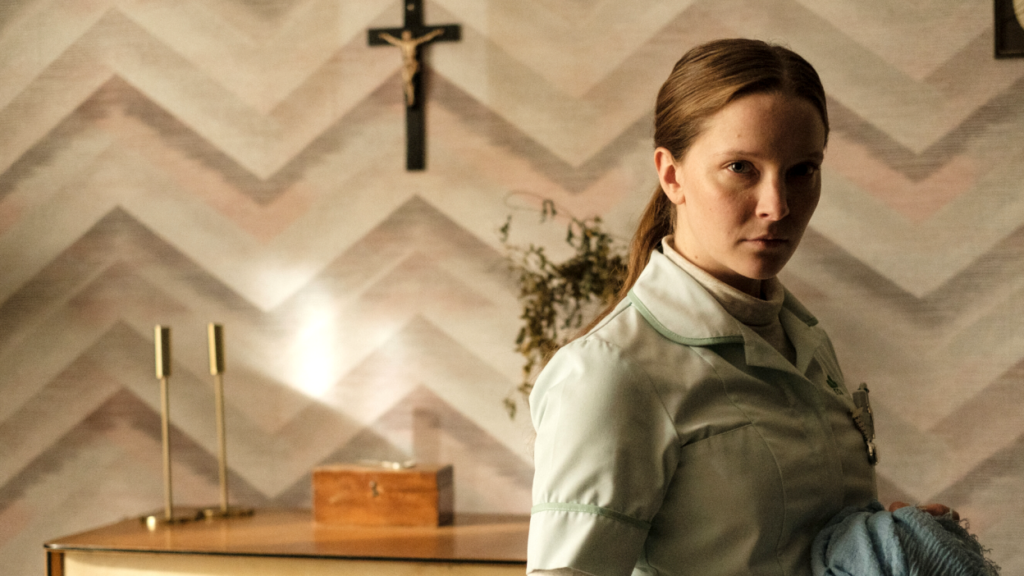A fear of the outside world, and an ever-draining social battery, means I miss out on quite a few industry events. Most of them I’m fine with missing out on. Go figure, the one time I decide to go to an event…it gets canceled. At some point, I secured a ticket to see Saint Maud projected on the side of an abandoned cathedral (or something like that) in Manhattan. Then a pesky little respiratory disease struck worldwide. The event was, understandably, canceled and was not rescheduled. I was less excited to see Saint Maud and more excited to see a supposedly sacrilegious movie in a church.
Saint Maud: From Grief to Obsession
Katie (Morfydd Clark) is grief-stricken after unsuccessfully performing CPR during her nursing duties. This untimely death causes Katie to change her name to Maud, turn Roman Catholic, and become a home healthcare provider. Maud finds herself looking after Amanda (Jennifer Ehle), who is dying of cancer. Eventually, Maud tries to save Amanda’s soul by converting her from Atheism to Roman Catholicism. Amanda plays along for some time, but eventually, Maud becomes too much, and that’s when things go south.
From the start, I think it’s fair to mention I gave Saint Maud a four-star rating on Letterboxd. Rose Glass’s debut feature film is visually stunning, assaulting the audience with strikingly beautiful (and terrifying) images. Where the film falls apart is the script. Maud is somewhat set up as a socially awkward god nut, but that’s all there really is. The death on her hands doesn’t feel fully realized within the script, it almost feels like it was retconned in a quickly rushed rewrite to add a few more minutes. The patient who died does mirror Maud’s wanting to save Amanda’s soul, but it just feels sloppy. This could be partly due to the film’s measly hour and 24-minute runtime; by the time the film really finds its footing, it’s over.
Saint Maud’s Genre Identity Crisis
Moreover, Saint Maud can’t decide what subgenre it wants to settle in, rather it dips its toes into a couple of different subgenres. In turn, it just can’t find its own identity. That being said, for someone who doesn’t necessarily care for the religious horror subgenre, the religious imagery within the film worked incredibly well for me. In most cases, a film where I love the visuals but not the story would fall somewhere in the two-and-a-half to three range, but some of the imagery in this film stuck with me days after watching. And it really makes you question not only your personal struggles but the struggles of those around you. Just because someone flashes you a smile doesn’t mean they don’t have tacks in their shoes.
Saint Maud exists as a film to get Glass’s foot in the door. It proves an extreme competency for filmmaking proper, and after seeing Love Lies Bleeding, it’s clear Saint Maud was a lesson in screenwriting for Glass. This film would be interesting to watch with a few friends on a rainy autumn night. It would also be an interesting one to show your religious friends! I’m sure they’d talk to you again.
